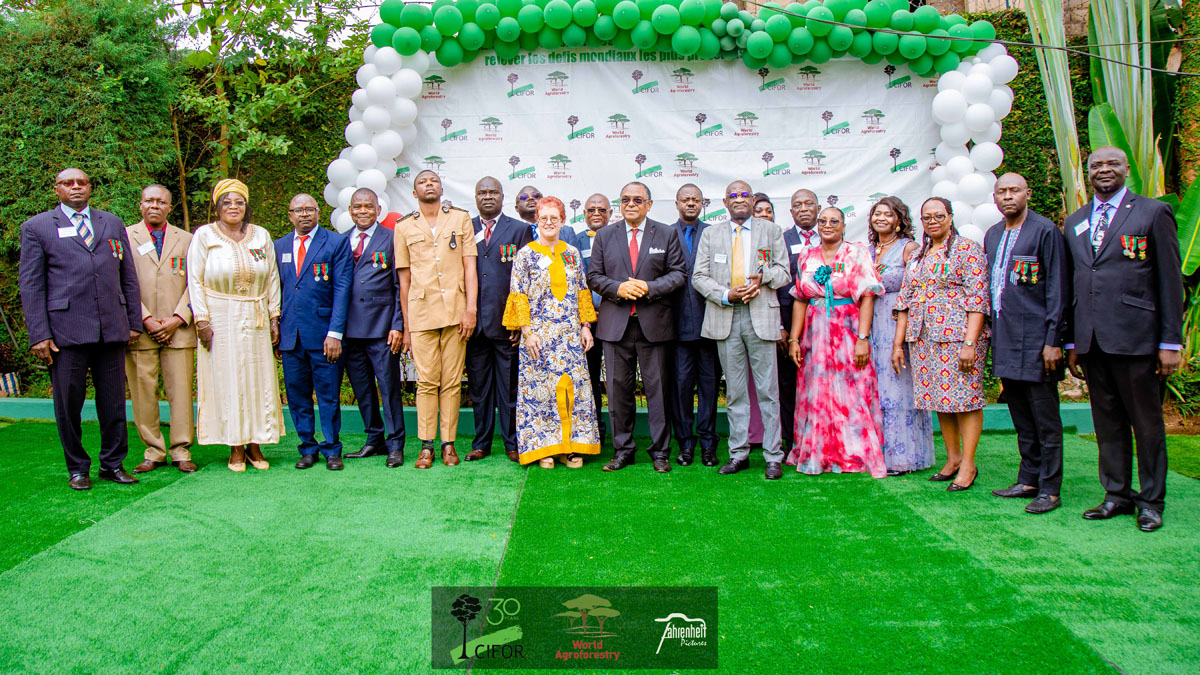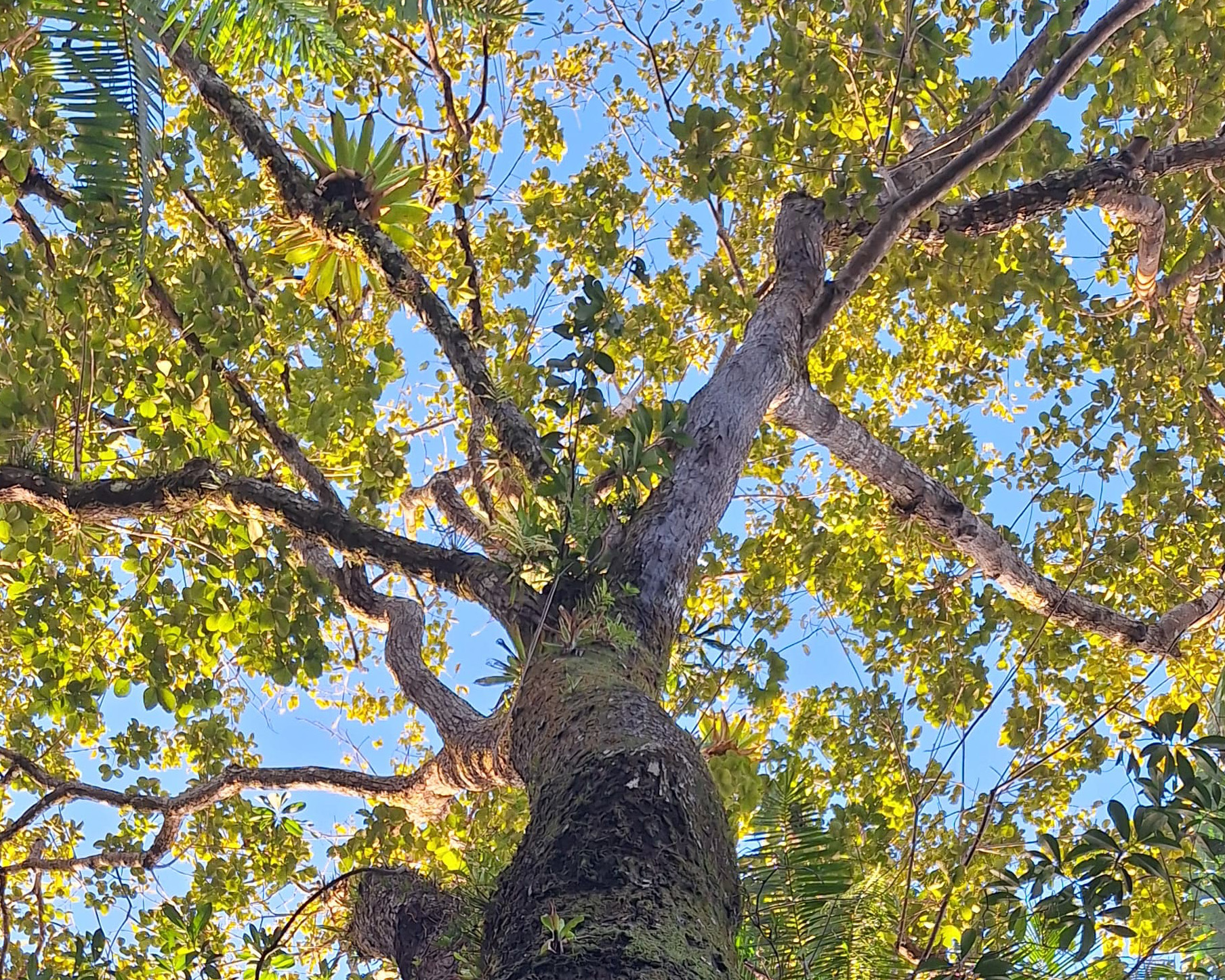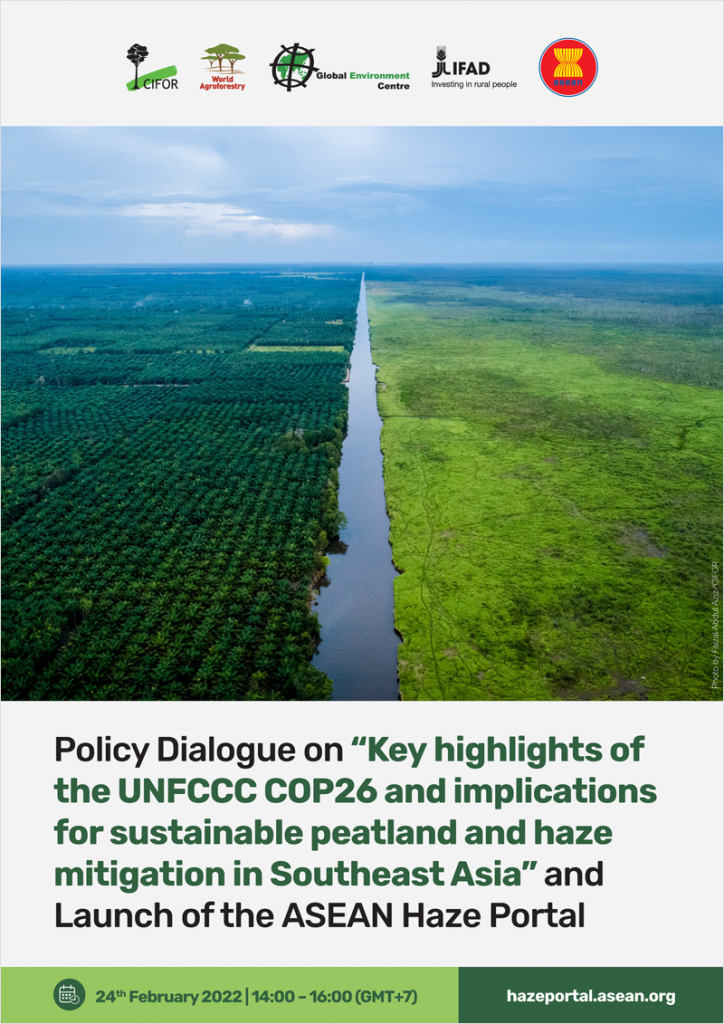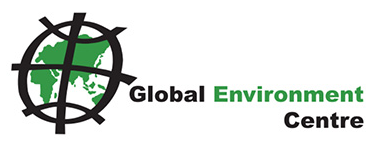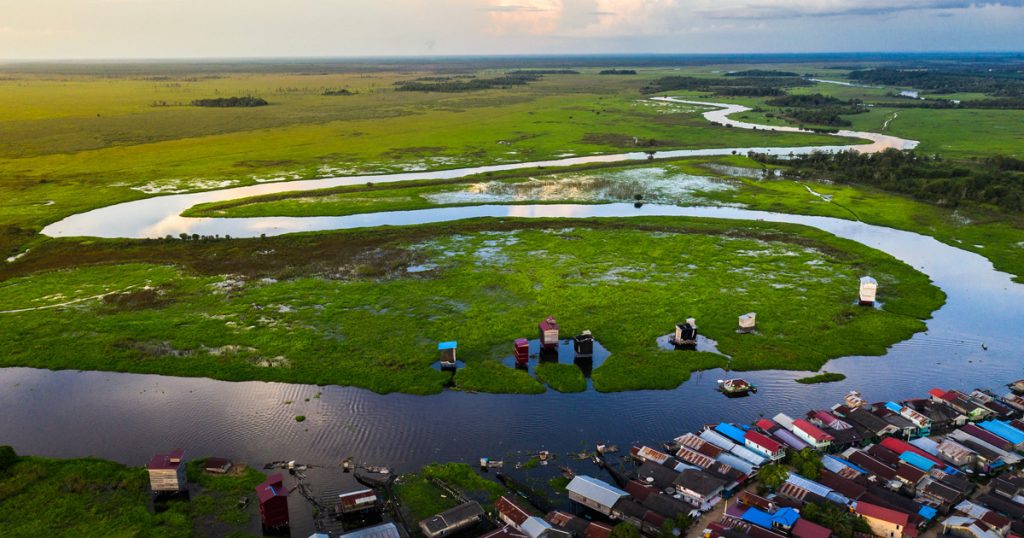
The UNFCCC 26th Conference of Parties (COP26) in Glasgow has concluded with the spotlight falling on discussions towards achieving net-zero greenhouse gas (GHG) emissions by 2050 and enhancing ambition of emission reductions by 2030. ASEAN Member States (AMS) will work collaboratively towards achieving the ASEAN 2050 net zero transition targets.
ASEAN’s deforestation, peatland and forest fires, and haze have become one of major emission sources in the region, while the recent severe floods hitting the Philippines and Malaysia as well as droughts in the Mekong Sub-region are reminders of the climate change vulnerabilities. ASEAN will only be able to reach its target of net carbon neutrality by 2050 if its forests and peatlands stop emitting GHG and become a major carbon sink.
Peatlands in the ASEAN member states make up around 40% of global tropical peatlands and are among the most biologically diverse peatland ecosystems on Earth, storing up to 15% of all carbon on only 0.17% of global land area. ASEAN is strategically positioned to actively contribute to the global climate change mitigation efforts through its regional policies such as the ASEAN Agreement on Transboundary Haze Pollution (AATHP), ASEAN Peatland Management Strategy (APMS), and the Roadmap on ASEAN Cooperation Towards Transboundary Haze Pollution Control with Means of Implementation (ASEAN Haze-Free Roadmap). In line with the above, the ASEAN Secretariat, in partnership with the MAHFSA Programme, will host a Post COP26 virtual Policy Dialogue on “Key Highlights of the UNFCCC COP26 and Implications for Sustainable Peatland and Haze Mitigation in Southeast Asia”.
Objectives
- Inform ASEAN Member States (AMS) and relevant ASEAN Sectoral Bodies and other stakeholders on the highlights and targets from the UNFCCC COP26 related to peatland management and haze mitigation.
- Discuss the implications and potential opportunities, gaps and challenges for enhancing ASEAN peatlands, haze and climate policies and programmes.
- Brainstorm on next steps or strategies of ASEAN peatland partners as well as key concerned AMS to support their NDCs on peatland and haze prevention in relation to climate change mitigation and adaptation.
For more information, please contacts:
- Sinta Silviana (s.silviana@cgiar.org)
- Dyah Ayu Ritma Ratri (dyah.ratri@asean.org)







